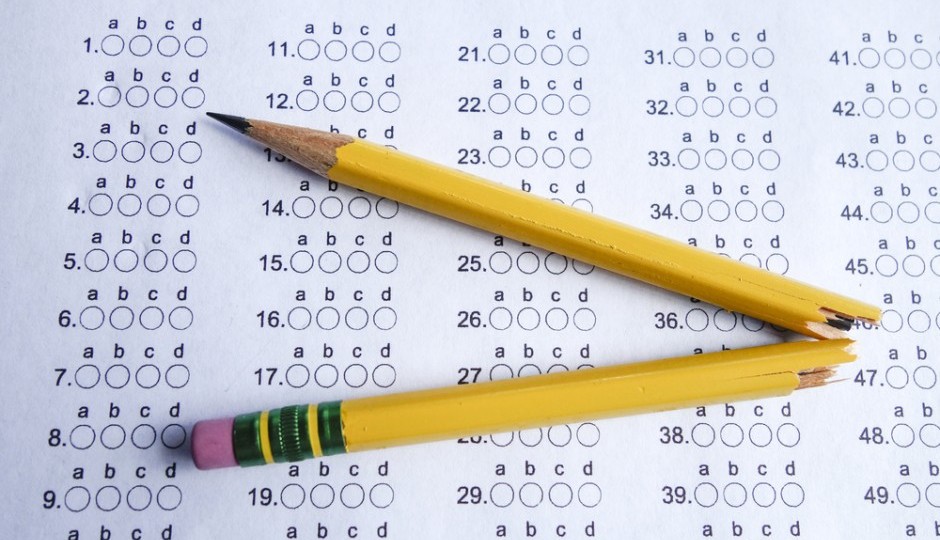Insider: Teachers Should Be Opting-Out of Their Own Uninspired Tests

Shutterstock.com
(Editor’s note: This is an opinion column from a Citified insider.)
The story of Philadelphia’s schools play like a bad rerun — principals making awful decisions under the threat of even more heinous budget cuts. Governor Wolf and the Philadelphia delegation continue to fight for more. Harrisburg (and some allies in Center City) refuse to give a damn.
But even the most jaded and bored among us should be able to see the appeal of the summer’s compelling new education storyline. It’s got everything: parents and teachers versus gargantuan test companies, privacy implications and huge stakes — nothing less than the direction and focus of the U.S. education system.
The opt-out movement — parents refusing to have their kids take the standardized tests mandated by federal and state governments — is exploding. New York had an opt-out rate of nearly 20 percent in 2015. Long Island in open revolt. Pennsylvania has a small number of objectors overall, but a 220 percent increase over last year shows this is no longer a fringe movement. Philadelphia will even host the national opt-out conference this February.
There are a lot of good reasons to opt-out of standardized tests, be it the PSSAs or Keystones. There’s the terrible incentives to teach to the tests; the absurd profit margins by the companies that sell them; and the resources that go directly to preparing kids to take them even as art and music and gym are stripped from the curriculum. Also? Test data is stored with little thought for privacy; the exams are created and administered in secret without any public accountability and then are graded by people who may not have academic qualifications and are paid less than whoever made your Frappuccino; the rules for passing and failing are one step away from Calvinball.
Despite all this, most families simply take the test. Even in New York, 80% of parents seem unfazed. I posit the problem isn’t in the strength of the message, but the scope.
For opt-out to grow into a force that dramatically changes education, the focus must expand. If we are worried about testing our students to death, we can’t stop with the state. Advocacy has to go all the way to the classroom.
Consider a “regular” 9th grade math class. Let’s say the teacher gives a test every two weeks and a final at the end of the quarter. That’s not unreasonable, right? But assuming for a 45 minute class and 4 quarters, that child will spend 12 hours every year in math testing. The despicable Keystone only requires 4.
Multiply by the number of classes, and freshmen might face 60 hours of testing. Why aren’t we worried about that sort of over-testing? To teach to the Pennsylvania system of school assessment (PSSA), a sin. To teach to a test on the history of the 13 colonies, divine.
Sure, classroom tests are more appropriate and more humane than any standardized tests. But a barrage of studies show that “better” doesn’t mean “good.” One study showed that students perceived by their teachers as “strong” got better marks on tests, even when they provided similar answers to those given by lower-performing students. Another study shows that teacher bias — based in racial, gendered, and economic stereotypes — affect they way they perceive student performance.
These flawed teacher-assigned tests, somehow so much better than the stat’s flawed tests, can change lives. A one point rise in GPA can increase lifetime earnings by 12 percent.. A Chicago study shows freshmen with a “C+” average have a 86 percent chance to graduate high school. Bring that GPA down .5 and the odds of graduation drop 14 percent. A “D” average, barely passing, puts those odds at a coin flip.
I’m not saying “abolish tests” or “everyone gets a trophy.” There’s merit in merit. But most teachers design their tests based on the 12 years they were in school, meaning that while the world has changed, assessments have not.
Take the stock market game, a long-cherished standby of social studies teachers. Traditionally, the game is more for fun than anything else. But a math class could ask students to calculate the losses or gains if they had sold a week ago. English teachers could require students to write every week about their choices. Could students defend owning a company that produced weapons or abused animals?
All of these are tests of a student’s skills. All are real decisions a student might make in the real world. None of them require the soul-devouring drudgery of multiple choice — whether it’s inflicted by the state or the teacher.
There’s lots of ways to make authentic, interesting, meaningful tasks a “test.” Many Philadelphia teachers are opting-in to this type of learning (even writing books about it), but too many are content to throw rocks at Pearson, without thinking about their own testing regimes.
Convincing parents to opt-out means both attacking the status quo and presenting a good alternative. Replacing abysmal standardized tests with mediocre classroom tests is hardly a rallying cry. For activists, this work needs to be of equal importance to toppling the status quo left in the wake of No Child Left Behind.
Andrew Saltz has been teaching children reading and composition for 8 years at the Paul Robeson High School for Human Services. Follow him on Twitter at @mr_saltz.